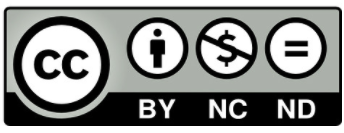La teoría algebraica de proposiciones y los reportes de creencias
DOI:
https://doi.org/10.53382/issn.2735-6140.75Palabras clave:
contextos intensionales, proposiciones, condiciones de identidad, modos de presentación, operacionesResumen
Los contextos intensionales son aquellos en los que falla el principio de sustitución de términos co-referenciales salva veritate. Un caso particular dentro de estos contextos son los reportes de actitudes proposicionales, esto es, contextos en los que relaciones expresadas por verbos transitivos intensionales (“creer”, “dudar”) vinculan un agente y una proposición. Las concepciones tradicionales que reducen las proposiciones a mundos posibles no han podido dar cuenta de estos contextos porque postulan condiciones de identidad de grano grueso. Esta ha sido una de las motivaciones para la formulación de teorías algebraicas de propiedades, relaciones y proposiciones. El objetivo de este trabajo es explicar cómo esta teoría da cuenta de estos fallos. De acuerdo con estas concepciones, las proposiciones son propiedades 0-ádicas que figuran como elementos dentro de sistemas algebraicos intensionales. Las condiciones de identidad de las proposiciones están determinadas por sus constituyentes y la estructura impuesta por las operaciones algebraicas. Se argumenta que las teorías algebraicas no pueden acomodar los reportes de creencia apelando solamente a las estructuras de las proposiciones, por lo que se requiere suplementar la teoría con modos de presentación.
Descargas
Referencias
Adams, R. (1974). Theories of Actuality. Nous, 8, 211-231.
Alvarado, J. T. (por aparecer a). Las dos vertientes de metafísica de propiedades. Elementos para una reconciliación.
Alvarado, J. T. (por aparecer b). El álgebra de universales.
Bealer, G. (1998). Propositions. Mind, 107(425), 1-32.
Bealer, G. (1994). Property Theory: The Type-Free Approach v. the Church Approach. Journal of Philosophical Logic, 23, 139-171.
Bealer, G. (1993). A Solution to Frege’s Puzzle. Philosophical Perspectives, 7, 17-60.
Bealer, G. (1989). Fine-Grained Type-Free Intensionality (pp. 177-230). En Gennaro Chierchia, Barbara Partee, Raymond Turner (Eds.), Properties, Types, and Meaning. Volume 1: Foundational Issues. Kluwer.
Bealer, G. (1982). Quality and Concept. Clarendon Press.
Bealer, G. (1979). Theories of Properties, Relations, and Propositions. The Journal of Philosophy, 76(11), 634-648.
Carnap, R. (1956). Meaning and Necessity: A Study in Semantics and Modal Logic. The University of Chicago Press.
Chierchia, Gennaro, Barbara Partee y Raymond Turner. (1989) Properties, Types, and Meaning. Volume 1: Foundational Issues. Kluwer.
Chierchia, G. (1984). Topics in the Syntax and Semantics of Infinitives and Gerunds. PhD Dissertation, University of Massachusetts.
Church, A. (1950). On Carnap’s Analysis of Statements of Assertion and Belief. Analysis, 10(5), 97-99.
Frege, G. (1998). Ensayos de semántica y filosofía de la lógica. Tecnos.
Fritz, P. & Jones, N. K. (por aparecer). Higher-Order Metaphysics. Oxford University Press.
Jubien, M. (2001). Propositions and the Objects of Thought. Philosophical Studies, 104, 47-62
King, J. (2017). The Metaphysics of Propositions. Oxford Handbooks Online.
King, J. (2014). What Role do Propositions Play in our Theories? (pp. 5-8). En Jeffrey King, Scott Soames, Jeff Speaks (Eds.), New Thinking about Propositions. Oxford University Press.
Kripke, S. (1980) Naming and Necessity. Harvard University Press,
Lewis, D. (1986). On the Plurality of Worlds. Blackwell.
Lewis, D. (1983). New Work for a Theory of Universals. Australasian Journal of Philosophy, 61(4), 343-377.
Lewis, D. (1970). General Semantics. Synthese, 22, 18-67.
McMichael, A. & Zalta, E. (1980). An Alternative Theory of Nonexistent Objects. Journal of Philosophical Logic, 9, 297-313.
Menzel, C. (2022). The Possibilism-Actualism Debate. En Edward N. Zalta y Uri Nodelman (Eds.), The Stanford Encyclopedia of Philosophy. https://plato.stanford.edu/entries/possibilism-actualism/.
Menzel, C. (1993). The Proper Treatment of Predication in Fine-Grained Intensional Logic. Philosophical Perspectives, 7, 61-87.
Menzel, C. (1986). A Complete, Type-Free, ‘Second Order’ Logic and its Philosophical Foundations, CSLI Report 86-40: Center for the Study of Language and Information.
Merricks, T. (2015). Propositions. Clarendon Press.
Montague, R. (1974). Pragmatics and Intensional Logic. En Richmond H. Thomason (Ed.), Formal philosophy: Selected papers of Richard Montague. Yale University Press.
Nelson, M. (2019). Propositional Attitude Reports. En Edward N. Zalta y Uri Nodelman (Eds.), The Stanford Encyclopedia of Philosophy. https://plato.stanford.edu/entries/prop-attitude-reports/.
Parsons, D. (2016). Theories of Intentionality. A Critical Survey. Springer.
Salmon, N. (1986). Frege’s Puzzle. MIT Press.
Soames, S. (2014). Cognitive Propositions (pp. 91-124). En Jeffrey King, Scott Soames, Jeff Speaks (Eds.), New Thinking about Propositions. Oxford University Press.
Soames, S. (2010). What is Meaning?. Princeton University Press, 2010.
Soames, S. (1987). Direct Reference, Propositional Attitudes, and Semantic Content. Philosophical Topics, 15(1), 47-87.
Speaks, J. (2014). What’s Wrong with Semantic Theories which Make no Use of Propositions?. En Jeffrey King, Scott Soames, Jeff Speaks (Eds.), New thinking about propositions. Oxford University Press.
Stalnaker, R. (1984). Inquiry. MIT Press.
Stalnaker, R. (2003). Ways a World Might Be: Metaphysical and Anti-Metaphysical Essays. Oxford University Press.
Swoyer, C. (1998). Complex Predicates and Logics for Properties and Relations. Journal of Philosophical Logic, 27, 295-325.
Swoyer, C. (1997). Complex Predicates and Conversion Principles. Philosophical Studies, 87, 1-32.
Swoyer, C. (1996). Theories of Properties: From Plenitude to Paucity. Philosophical Perspectives, 10, 243-264.
Swoyer, C. (1993). Logical and Empirical Conceptions of Properties. Philosophical Topics, 21(2), 199-231.
Trueman, R. (2021). Properties and Propositions: The Metaphysics of Higer-Order Logic. Cambridge University Press.
Zalta, E. (1988). Intensional Logic and the Metaphysics of Intentionality. MIT Press.
Zalta, E. (1983). Abstract Objects. An Introduction to Axiomatic Metaphysics. Kluwer.
Descargas
Publicado
Número
Sección
Licencia
Derechos de autor 2024 Felipe Carrasco Figueroa

Esta obra está bajo una licencia internacional Creative Commons Atribución-NoComercial-SinDerivadas 4.0.






